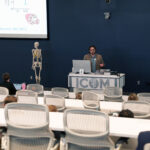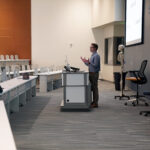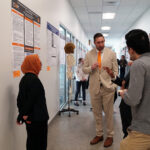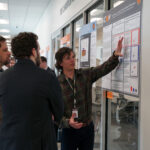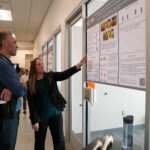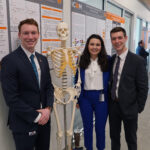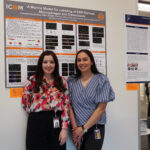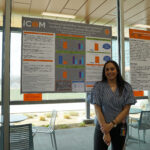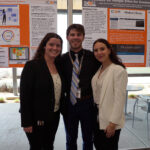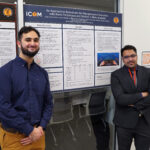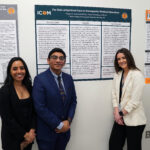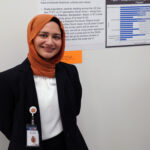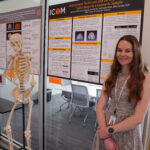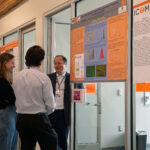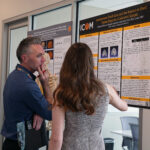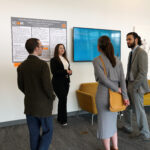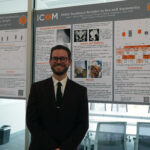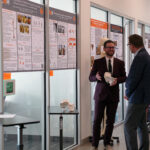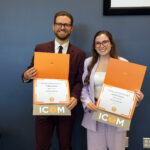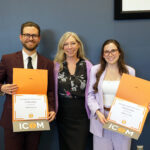A wide range of innovative research was on display at ICOM’s annual Research Conference on March 29. The event is a campus-wide celebration of the research and scholarly endeavors of the College’s students, faculty and institutional partners.
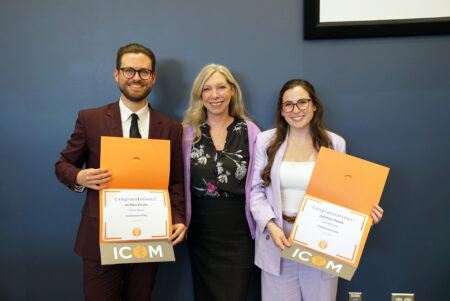 ICOM’s Research Conference provides students the opportunity to showcase the scholarly projects they have conducted under the guidance of faculty mentors and in collaboration with local researchers. This year, ICOM students submitted a total of 61 poster presentations, as well as three oral presentations — highlighting the work of 78 student doctors, 19 faculty members, and 38 external collaborations.
ICOM’s Research Conference provides students the opportunity to showcase the scholarly projects they have conducted under the guidance of faculty mentors and in collaboration with local researchers. This year, ICOM students submitted a total of 61 poster presentations, as well as three oral presentations — highlighting the work of 78 student doctors, 19 faculty members, and 38 external collaborations.
“Each year, we’ve seen an increased number of participating students,” said Dr. Stephanie Child, Interim Chair of Research at ICOM. “This is a great draw because not only are we highlighting the work that our current students are doing, but it gets the next cohort excited about doing this next year.”
Winning research presentations were determined by faculty judges and voted on five criteria, including: appearance, organization, content, rigor, and presentation. The award-winners include Shaun Moore for 1st Place Research Poster and Gabrielle Echt for 2nd Place Research Poster.
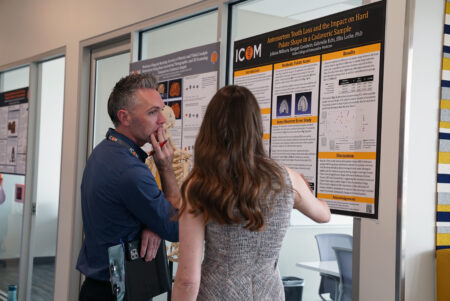 “My favorite part of Research Conference was actually getting to see what everyone else was studying and understanding the interests that my colleagues and peers were analyzing,” said Shaun Moore, a second-year medical student at ICOM. “I am really interested in pursuing Internal Medicine and then going into Infectious Disease. In regards to research, it influences preventative natures and understanding pathology. Knowing how to explain up-to-date results will improve patient outcomes in the future.”
“My favorite part of Research Conference was actually getting to see what everyone else was studying and understanding the interests that my colleagues and peers were analyzing,” said Shaun Moore, a second-year medical student at ICOM. “I am really interested in pursuing Internal Medicine and then going into Infectious Disease. In regards to research, it influences preventative natures and understanding pathology. Knowing how to explain up-to-date results will improve patient outcomes in the future.”
This year, the keynote address was delivered by John Thyfault, PhD, FACSM, FTOS, a Professor of Cell Biology and Physiology at the University of Kansas Medical Center. His talk
“Research is extremely important. It is not a separate entity of medical education,” said Dr. Child. “It teaches critical thinking skills, it teaches our student doctors to be consumers of science literacy, it tells us that they can read a paper, evaluate it, and effectively communicate it to the community, which increases patient outcomes.”
Learn more about research at ICOM by visiting icom.edu/research.
